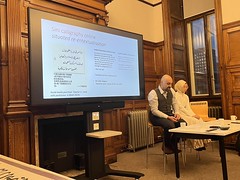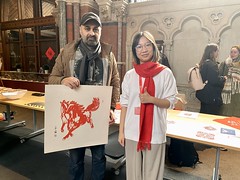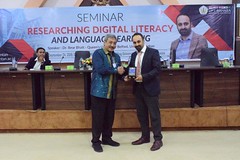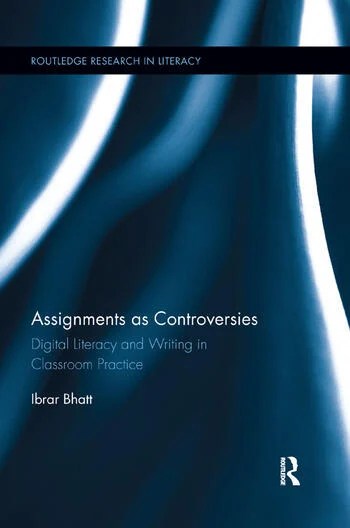


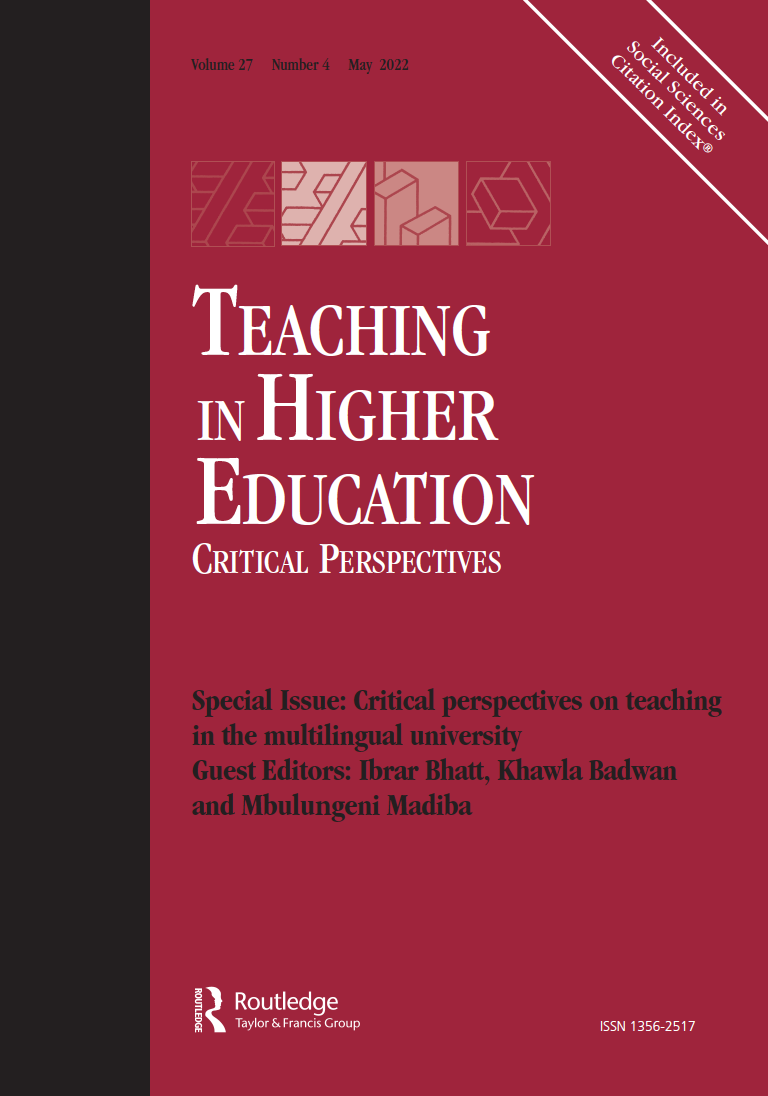
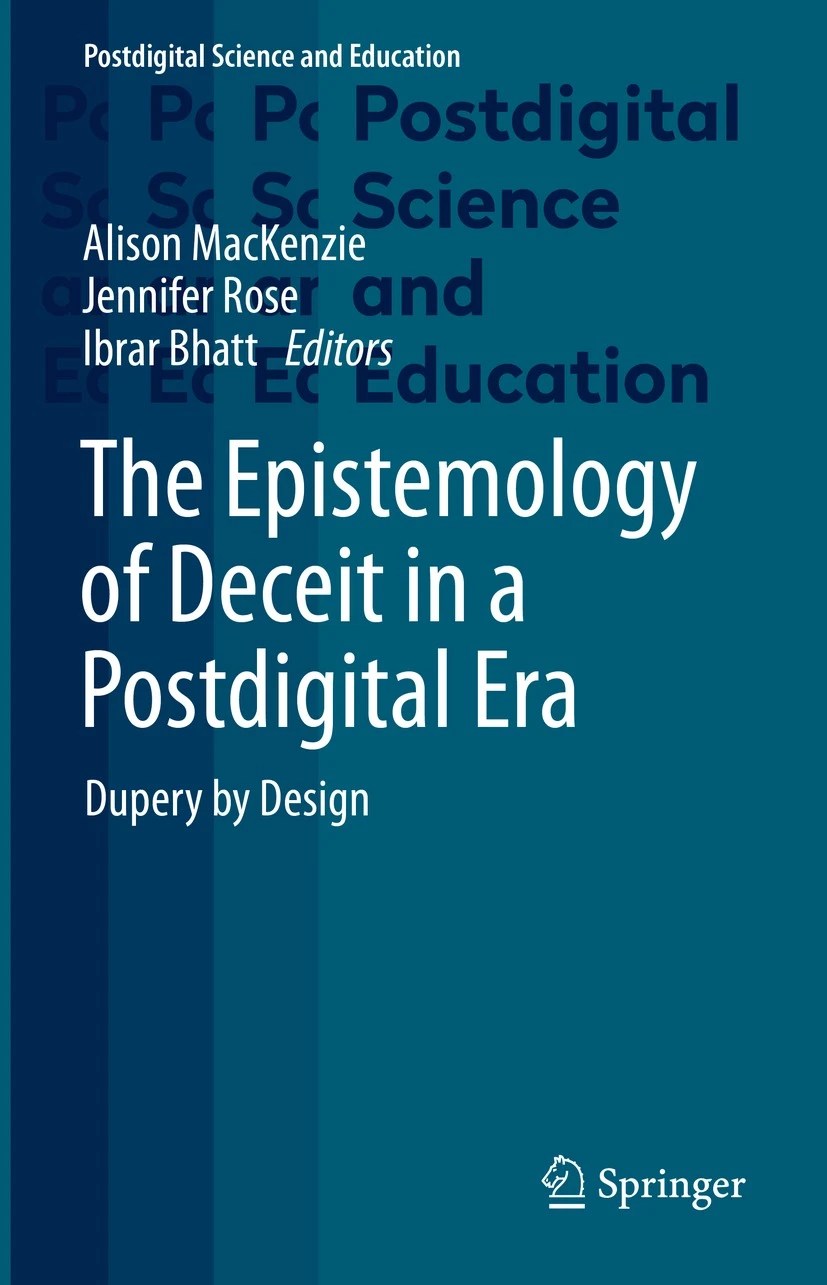
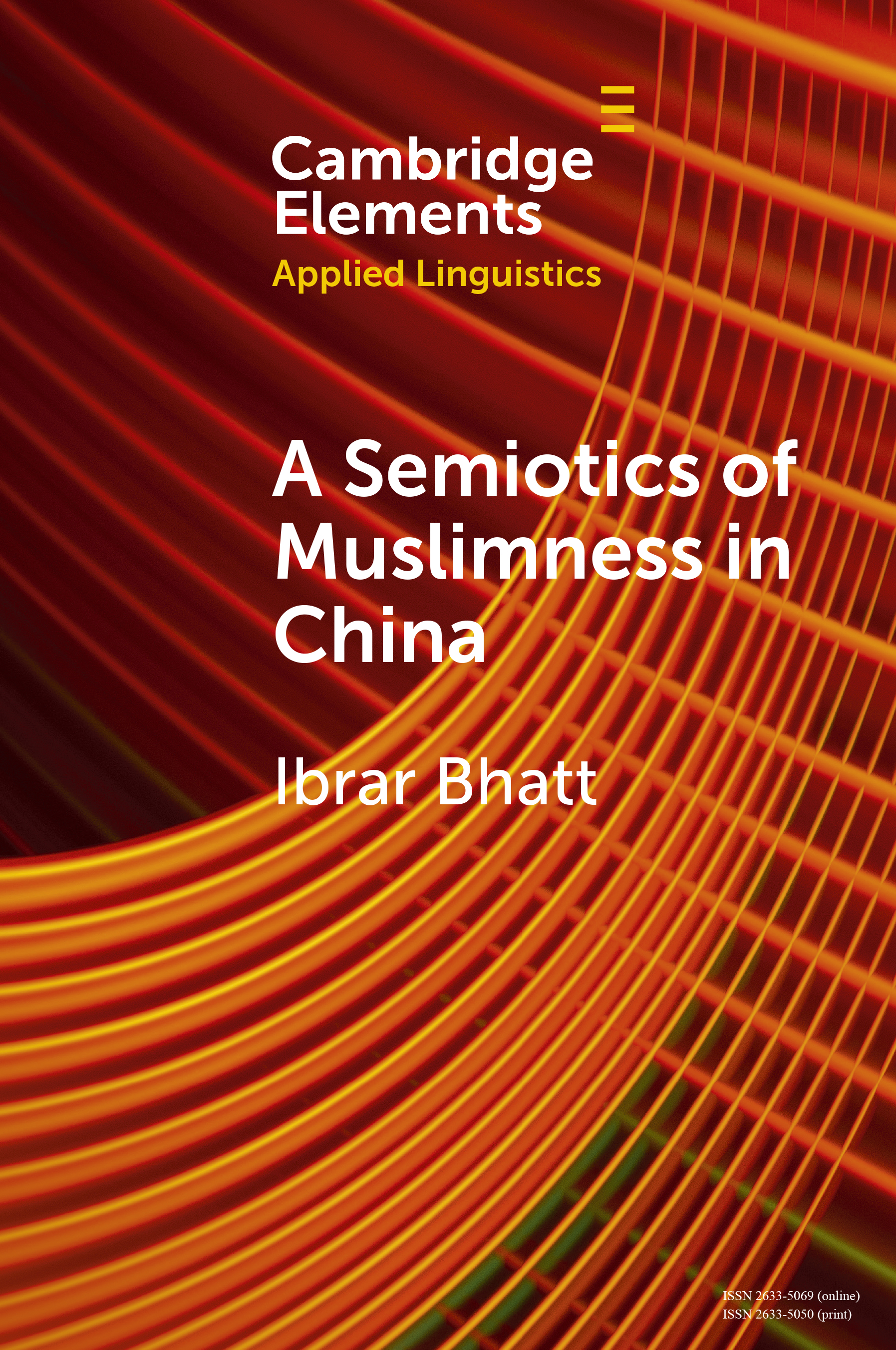
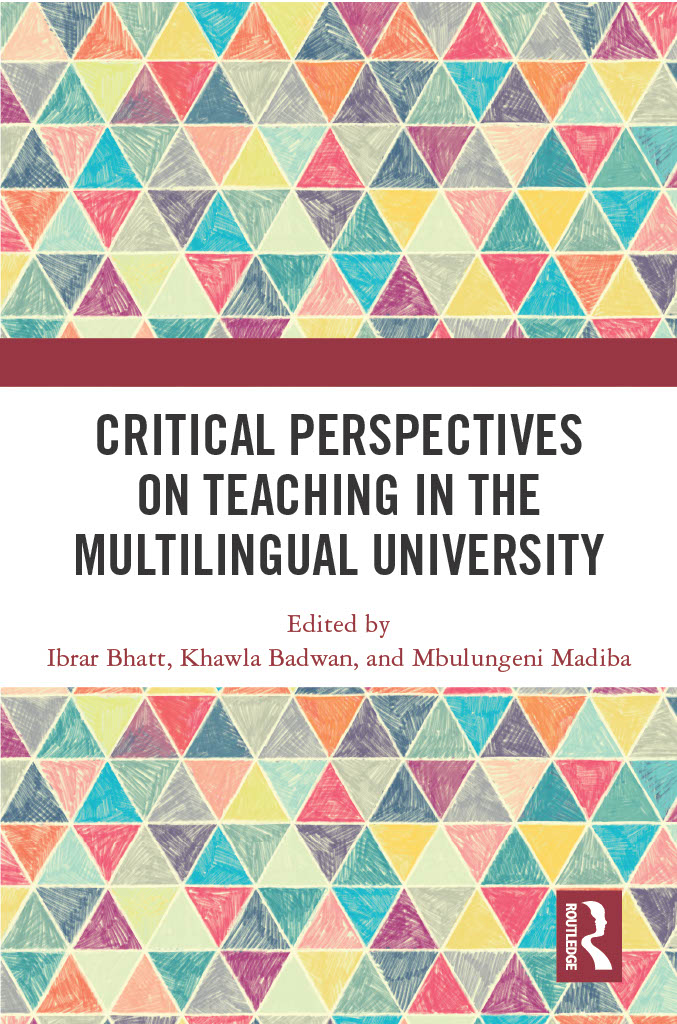

Bhatt, I. and Wang, H. (2026) Heritage Literacy in the Lives of Chinese Muslims, Bloomsbury [research monograph]
Li, Z., & Bhatt, I. (Forthcoming, 2026). Reimagining intercultural communication and education through Chinese cosmopolitanism. Middle East Critique.
Abdul-Jabbar, W.K. & Bhatt, I. (2025). Post-authorship and AI-Assisted Writing: Singularity, Communication, and Pedagogy in Higher Education. Postdigital Science & Education. https://doi.org/10.1007/s42438-025-00586-5
Luckett, K., Bhatt, I., & MacKenzie, A. (2025). Editorial: getting critical about critique in higher education. Teaching in Higher Education, 30(6), 1331–1342. https://doi.org/10.1080/13562517.2025.2524644
Bhatt, I., Barnawi, O. Z. & Ahmad, R. (2025). Exploring a Sociolinguistics of Islam, Applied Linguistics, DOI: 10.1093/applin/amaf043
Wang, Y. & Bhatt, I. (2025) Big sister, dog, and ethnic names: Semiotic ideologies of self-naming on
Xiaohongshu (RED), Discourse, Context & Media, https://doi.org/10.1016/j.dcm.2025.100898
Bhatt, I. & Chen, X. (2025) Ecologies of Research Writing in Chinese Universities, Written Communication, DOI: https://doi.org/10.1177/07410883251349202
Li, Z. & Bhatt, I. (2025) Postdigital Linguistics, In: Jandrić, P. (Ed.). The Encyclopaedia of Postdigital Science and Education. Cham: Springer https://doi.org/10.1007/978-3-031-35469-4_95-1
Bhatt, I, Badwan, K. & Madiba, M. (2024) Critical Perspectives on Teaching in the Multilingual University, Routledge. [edited book]
Bhatt, I. & Li, Z. (2024) Towards Understanding Heritage Literacy, Journal of Multilingual and Multicultural Development, https://doi.org/10.1080/01434632.2024.2422457
Bacalja, A. et al (2024) Postdigital Videogames Literacies: Thinking With, Through, and Beyond James Gee’s Learning Principles [section on ‘Postdigital Literacy Ecologies’], Postdigital Science & Education, https://doi.org/10.1007/s42438-024-00510-3
Jopling, M. et al (2024) Postdigital Citizen Science and Humanities: A Theoretical Kaleidoscope [section on ‘Citizen Linguistics’], Postdigital Science & Education, https://doi.org/10.1007/s42438-024-00481-5
Luckett , K. and Bhatt, I. (2024) Getting Critical about Critique in Higher Education: Provocations on the meanings of ‘Critical Perspectives’, Teaching in Higher Education: Critical Perspectives, https://doi.org/10.1080/13562517.2024.2335223.
Bhatt, I. (2023) A Semiotics of Muslimness in China, Cambridge University Press (Series: Elements in Applied Linguistics), https://doi.org/10.1017/9781009415910 [research monograph]
Bhatt, I. (2023) Postdigital Possibilities in Applied Linguistics. Postdigital Science and Education, https://doi.org/10.1007/s42438-023-00427-3
Bhatt, I. (2023) ‘Postdigital Literacies’. In: Jandrić, P. (Ed.). The Encyclopaedia of Postdigital Science and Education. Cham: Springer, https://doi.org/10.1007/978-3-031-35469-4_15-1 (see here)
Bhatt, I. & Wang, H. (2023) ‘Everyday heritaging: Sino-Muslim literacy adaptation and alienation’, International Journal of the Sociology of Language, vol. 2023, no. 281, pp. 77-101 DOI: 10.1515/ijsl-2022-0058
Savin-Baden, M, Reader, J. & Bhatt, I. (2023) The many faces of postdigital theologies, Postdigital Science and Education, https://doi.org/10.1007/s42438-023-00392-x
(2022) Critical perspectives on teaching in the multilingual university, Teaching in Higher Education, 27:4, 425-436, DOI: 10.1080/13562517.2022.2058295
MacKenzie, A., Rose, J., Bhatt, I. et al. (2022) ‘Postdigital Dupery and Its Epistemic Vices’, Postdigital Science & Education. DOI: https://doi.org/10.1007/s42438-022-00340-1
Bhatt, I. & Samanhudi, U. (2022). From academic writing to academics writing: Transitioning towards literacies for research productivity. International Journal of Educational Research, 111, DOI: https://doi.org/10.1016/j.ijer.2021.101917
MacKenzie, A., Rose, J. & Bhatt, I. (2021). The Epistemology of Deceit in a Postdigital Era: Dupery by Design, Springer, Series: Postdigital Science & Education. See https://link.springer.com/book/10.1007/978-3-030-72154-1
MacKenzie, A. & Bhatt, I. (2021) ‘Bad Faith, Bad Politics, Bad Consequences: The Epistemic Harms of Online Deceit’. In MacKenzie, A., Rose, J. & Bhatt, I. (Eds.) The Epistemology of Deceit in a Postdigital Era: Dupery by Design, Springer, pp. 3-20, https://doi.org/10.1007/978-3-030-72154-1_1 see here
MacKenzie, A., Bhatt, I. & Rose, J. (2021) ‘Introduction: The Genesis of Dupery by Design’. In MacKenzie, A., Rose, J. & Bhatt, I. (Eds.) The Epistemology of Deceit in a Postdigital Era: Dupery by Design, Springer, p. xvii-xxiii. see https://link.springer.com/content/pdf/bfm%3A978-3-030-72154-1%2F1.pdf
MacKenzie, A., Bhatt, I. & Rose, J. (2021) ‘Conclusion: Some Resolutions to Dupery and the Power of Online Platforms’. In MacKenzie, A., Rose, J. & Bhatt, I. (Eds.) The Epistemology of Deceit in a Postdigital Era: Dupery by Design, Springer, pp. 283-288. see https://link.springer.com/content/pdf/bbm%3A978-3-030-72154-1%2F1.pdf
MacKenzie, A., et al (2021). Dissolving the Dichotomies between Online and Campus-Based Teaching: A Collective Response to The Manifesto for Teaching Online (Bayne et al. 2020), Postdigital Science and Education. DOI: https://doi.org/10.1007/s42438-021-00259-z
MacKenzie, A., Rose, J. & Bhatt, I. (2020). Dupery by Design: The Epistemology of Deceit in a Postdigital Era, Postdigital Science and Education. 2, 2 DOI: 10.1007/s42438-020-00114-7
MacKenzie, A. & Bhatt, I. (2020). Opposing the power of lies, bullshit and fake news: the value of truth, Postdigital Science and Education. 2, 1, p. 217-232 DOI: 10.1007/s42438-019-00087-2
MacKenzie, A. & Bhatt, I. (2020). Lies, Bullshit and Fake News: A Consideration of Their Epistemic Vices [Editorial], Postdigital Science & Education, DOI: https://doi.org/10.1007/s42438-018-0025-4
Reader, J. et al. (2020) Enchantment – Disenchantment-Re-Enchantment: Postdigital Relationships between Science, Philosophy, and Religion, Postdigital Science and Education. 3, pp. 934–965. DOI: https://doi.org/10.1007/s42438-020-00133-4
Bhatt, I. & MacKenzie, A. (2019). Just Google it! Digital Literacy and the epistemology of Ignorance, Teaching in Higher Education [special issue on “Experts, knowledge and criticality in the age of ‘alternative facts’: re-examining the contribution of higher education”], Vol 24:3, pp. 302-317, DOI: https://doi.org/10.1080/13562517.2018.1547276 [link]
Khan, S. & Bhatt, I. (2019). ‘Curation’. In Hobbs, R. & Mihailidis, P. (eds.), The International Encyclopedia of Media Literacy. NJ: Wiley-Blackwell. https://doi.org/10.1002/9781118978238.ieml0047
MacKenzie, A. & Bhatt, I. (2019). Lies, Bullshit and Fake News: Some Epistemological Concerns, Postdigital Science & Education, DOI: https://doi.org/10.1007/s42438-018-0025-4
Tusting, K., McCulloch, S. Bhatt, I. Hamilton, M. & Barton, D. (2019). The Dynamics of Knowledge Creation: Academics Writing in the the Contemporary University. Routledge. [research monograph]
Bhatt, I. (2017). Assignments as controversies: digital literacy and writing in classroom practice, Routledge Research in Literacy. New York: Routledge. [research monograph]
Bhatt, I. (2017). ‘Classroom digital literacies as interactional accomplishments’. In Researching New Literacies: Design, Theory, and Data in Sociocultural Investigation, Knobel, M. and Lankshear, C. (eds.), New York: Peter Lang. pp. 127-149 [link]
Bhatt, I, de Roock, R & Adams, J. (2015). Diving deep into digital literacy: emerging methods for research, Language and Education, Vol. 29 (6) pp. 477-492, DOI: http://dx.doi.org/10.1080/09500782.2015.1041972
de Roock, R., Bhatt, I. and Adams, J. (2015). ‘Video analysis in digital literacy studies: Exploring innovative methods’. In Digital Methods for Social Sciences: An Interdisciplinary guide to research innovation, Snee, H., Hine, C., Morley, Y., Roberts, S. & Watson, H. (eds.), Hampshire: Palgrave Macmillan, pp. 105-121. [link]
Bhatt, I. and de Roock, R. (2013). Capturing the Sociomateriality of Digital Literacy Events, Research in Learning Technology, Special Issue: Scholarship and Literacies in a Digital Age, Vol. 21 (4) DOI: http://dx.doi.org/10.3402/rlt.v21.21281 Note: this paper is sometimes cited as ‘2014’ but it actually belongs to the 2013 volume]
Bhatt, I. (2012). Digital literacy practices and their layered multiplicity, Educational Media International, doi: 10.1080/09523987.2012.741199, Vol. 49 (4), pp. 289-301. [Journal article]
Other
“New media, digital literacy and the mechanics of trust” University World News, January 25 2020, available at: https://www.universityworldnews.com/post.php?story=20200122075758703
“What’s the point of education if Google can tell us anything?” The Conversation, July 24 2015, available at: https://theconversation.com/whats-the-point-of-education-if-google-can-tell-us-anything-44441 [Trans: French, German, Korean]



